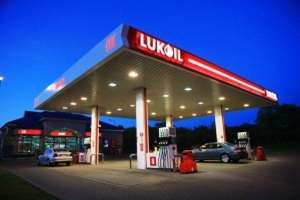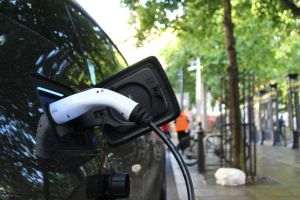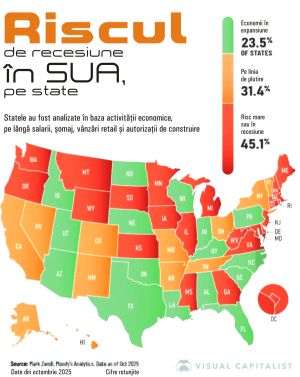There is a region in Canada called New Scotland. A few days ago, a businessman from that region came to Romania seeking customers for his consultancy firm. His presence in Bucharest appeared surprising. What could determine a businessman from New Scotland to allocate an entire week and some money from his firm's budget to seek customers in a country he knows almost nothing about, in a part of Europe where he has not done business before and, on top of everything, in a world that works by different rules than those of the business world he comes from? The answer is simple. Information this man received from British business circles describes Romania as "an emerging market" and so he decided he wanted to take advantage of pioneering such market.
So, here we have two pieces of good news in one phrase, coming right after all the bad news about Romania that has become almost a rule in any discussion about this country.
The first piece of good news is that, at least in a part of the exclusivist international business community, Romania is starting being perceived as a good place to make investments and profit. Moreover, this feeling is solid enough and widespread enough to reach the distant New Scotland and prompt business people to come here, despite the fact that Romania did not mean anything to them a few years or even a few months ago.
The second piece of good news is that, beyond what we imagine to be happening in the macroeconomy and the political world, there is also a different reality: the real economy, which has started to move rather by itself, independently from political turmoil, social tension and intellectual, expert or journalistic debates on the Romanian economy.
At this point in time, Romania has three economies.
The first is the rural economy, dominated by the primitive agricultural system of small peasant farms/households, where every third Romanian lives a life that combines many 19th Century characteristics with the gadgets of The 21st Century. Globalization, European accession and transition are destroying this economy by absorbing its products in exchange for prices that are below production costs, by denying its access to resources and, most importantly, by impoverishing its people.
The second Romanian economy is a product of the transition period, sort of "a Socialist market economy" that allows certain businesses to survive or even prosper for the simple reason that their preferential relationships with The State and certain politicians enable them to make outstanding profits by embezzling public money. This is a world where business, politics, corruption and bureaucracy converge and produce, among many others, unjustified transfers of resources and illegitimate political benefits. This type of economy - which includes Romanian and foreign capital alike, intelligence services, mass media, political influences and ideological currents - is the main product of bad reform measures applied in an even worse manner over the past 15 years. Apparently, this economy is the main beneficiary of the period of transition and dominates the overall economy of the country as well as politicians, business owners, workers, mass media and commentators alike.
Although this type of economy looks prevalent and victorious, in the long run it will be the absolute loser in this power game. For in the outskirts of this rotten economy, a new kind of economy is developing, quietly but firmly: a modern, bold economy based entirely on market economy rules and indifferent to political machinations. This is the real "functional market economy" in Romania, the economy that has mounted an all-out offensive.
By staying away from the State-run economy and by not participating in "the big give-away" (the privatization of the former socialist economy), this economy has managed to keep a low profile and, more importantly, to be left alone. This economy focused on the new business industries: telecommunications, I.T., B2B services... This economy is on swiftly upward course. Among others, millions of mobile telephony users, a fast P.C. penetration rate (nearly one million new units per year), an unprecedented communications, data networks and hi-tech boom. This is what this economy has done so far. This industry has also created the most competitive industry in Romania: the I.T. industry, the country's spearhead on international markets. Romanian software is already appreciated on an international scale. Romania now ranks among the top ten countries in the world in terms of highly-skilled I.T. personnel. Romania's I.T. market has reached nearly 2 billion USD per year and counting.
This is the new Romanian economy, the economy that will eventually eliminate the other two economies without too much trouble. It is true, though, that, for the time being, this economy is limited to one hyper specialized industry. It is also true that this economy is not yet an engine of nationwide development especially because of political and administrative reasons. But it is equally true that this economy is pressing for the restructuring of the two "classic' economies in the country and it is quite obvious that the long-term advantage is on its side.
It is this economy that defines the country as an emerging market. It is this economy that is gathering forces to press for the restructuring of the entire country - the workforce, the nationwide occupational structure, the way of life and, last but not least, the political system. In the near future, it is this economy that will generate changes and "tow' the traditional sectors such as education, health care, construction, retail, tourism and even the other industries.
It is for this economy and emerging market that New Scotland and other regions Romanians are hardly aware of are sending their business people and capital over here. All we need to do is leave this economy alone to do what it does best: modernize the Romanian economy.



























































